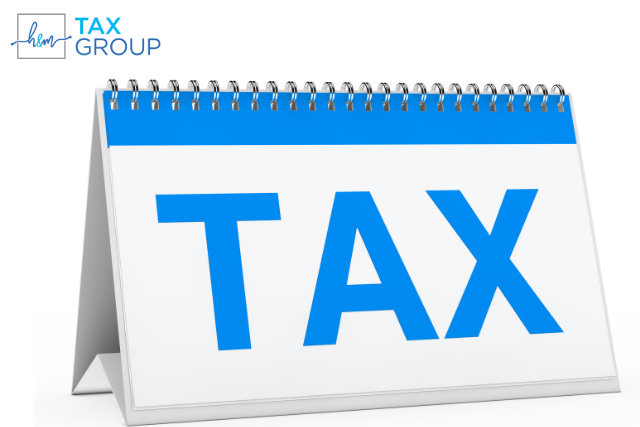There is a large number of citizens in Dallas who are lagging in their tax returns due to different reasons. Life becomes hectic, money matters become complex, or there are times when a person is simply overcome by the process. Not having paid taxes is a source of stress and concern over the possible outcomes, whatever the cause.
It is worth noting that the IRS has not ruled out filing past-year tax returns, and it is always advisable to do so rather than evade the issue. They have certain regulations regarding the extent of retrogression you may receive, the punishments you may encounter, and the way to resume.
This guide will provide answers to your questions about the IRS back-filing limit, how to avoid missing the deadline, etc. One year behind, several years behind, you know, either way, what these rules can make you do, rightly, is to move ahead.
What is the Maximum Years the IRS allows you to File Back Taxes?
In theory, there is no longer a restriction on the number of years a tax return can be filed. Even decades after the year, the IRS will accept old-year tax returns.
But there are limits on time in practice, which are important. Generally, the IRS concentrates on the last 6 years of the unfiled returns. In the case that you are behind several years, the IRS will normally demand that you file the last six years, in order to become compliant and avoid enforcement measures.
On refund, there exists a strict and long three-year regulation. You are required to claim any refund due to you within a period of three years of the initial due date. Three years later, that money is lost- you can still file the return, but you do not get the refund.
IRS back-filing limit on collections. In most cases, the back-filing of the tax is ten years after a collection. This is in line with the IRS being allowed a period of ten years in order to collect taxes that one is liable for. In Dallas, H&M tax group, our licensed tax people assist clients to get acquainted with these timelines and make plans to file several years effectively and correctly.
What is the Consequence of Not Filing within the Allowed Time taken by the IRS?
Not filing your tax returns causes a number of problems, which would worsen as time goes by. The knowledge of these consequences makes you wonder why it is such an important issue to file unfiled returns:
- Failure-to-File Penalties: The IRS imposes a penalty of 5 percent of the unpaid tax every month in which your return is only late, but not more than 25 percent. This penalty adds up quickly.
- Failure-to-pay penalties: in case you are supposed to pay taxes, there will also be a penalty for not paying on time, 0.5 of your unpaid taxes per month; however, it must not exceed 25.
- Interest charges: interest is charged on unpaid taxes and other penalties that are due before the actual payment date. Interest rates are changing quarterly, and they continue to compound.
- Loss of refunds: You permanently forfeit the refund that you would have gotten after three years. This is your own money that you made and paid taxes on, which you will never get back.
- IRS-enforced actions: The IRS can prepare a substitute Form 10-K on your behalf, based on the information available to them, which usually causes increased taxes due as they do not claim a deduction, credit, etc., that you should claim.
- On collection: To collect the outstanding taxes, the IRS can place a lien on your property, they can levy your bank accounts, or seize your wages.
Will you get a tax refund on filing older back taxes?
Yes, but you must be able to file it within three years of the original tax approval date.
Most individuals believe that they may not have been in time to file their refunds, and thus, they automatically lost their refund. That’s not true. That money is still available in case you are within the three-year window. In case you, however, owe tax refunds of any other year, the IRS can use your refund to settle them.
In the book of H&M Tax Group, we assist the willing taxpayers of Dallas to determine the years when they can get a refund and file the tax returns in that order. Our income tax preparation service comprises the review of past years’ tax returns to ensure that you are claiming all that you should be getting within the stipulated period.
Are the IRS Pursuing Years beyond which Penalties or Collections Can be Made?
Penalties and collections may be pursued by the IRS in case they learn about your unfiled returns. There are different times this may occur, and it is important to know when, because then you are able to evaluate yourself:
- Short-term punishments: The late filing and late payment penalties start to accrue as of the initial due date, notwithstanding the day or time that the IRS actually learns of your outstanding return filing.
- Substitute for Return (SFR): In case you do not file, the IRS can automatically draw up a return using the information it obtains about your income, as reported by employers and other financial institutions. This normally occurs 18 months or 24 months following the initial due date.
- Notice of Deficiency: When a substitute return has been filed, the IRS issues payment demands by sending notices. Failure to respond facilitates their ability to initiate collection measures within a period of 90 days.
- Ten-year collection period: The IRS can collect on a tax assessment within ten years after a tax assessment has been made (either by a filed tax return or by an IRS substitute tax return). When the assessment is documented, then this clock begins.
- Criminal prosecution: In severe instances of willful tax offence or in the case of fraud, criminal prosecution can be initiated against the IRS. This is not common, but most probably in the case of an individual who has a high income and deliberately does not file it over a number of years.
No statute of limitations in cases where unfiled returns are not filed: In the case that you have never filed a return, the time limit on filing a return by the IRS does not exist. The clock does not commence until a return is provided or the IRS also provides a substitute return.
Conclusion
It is high time you filed your tax returns, in case you have not done so. The later you are, the more fines you pay, and the narrower the possibilities to get a refund are, in particular. These fears or uncertainty should not deny you a chance to resolve this situation. Professional tax advice gives an understanding, minimizes the penalties where feasible, and gives a way out. Have unfiled tax returns? Roundab Consult H&M Tax in Dallas.


